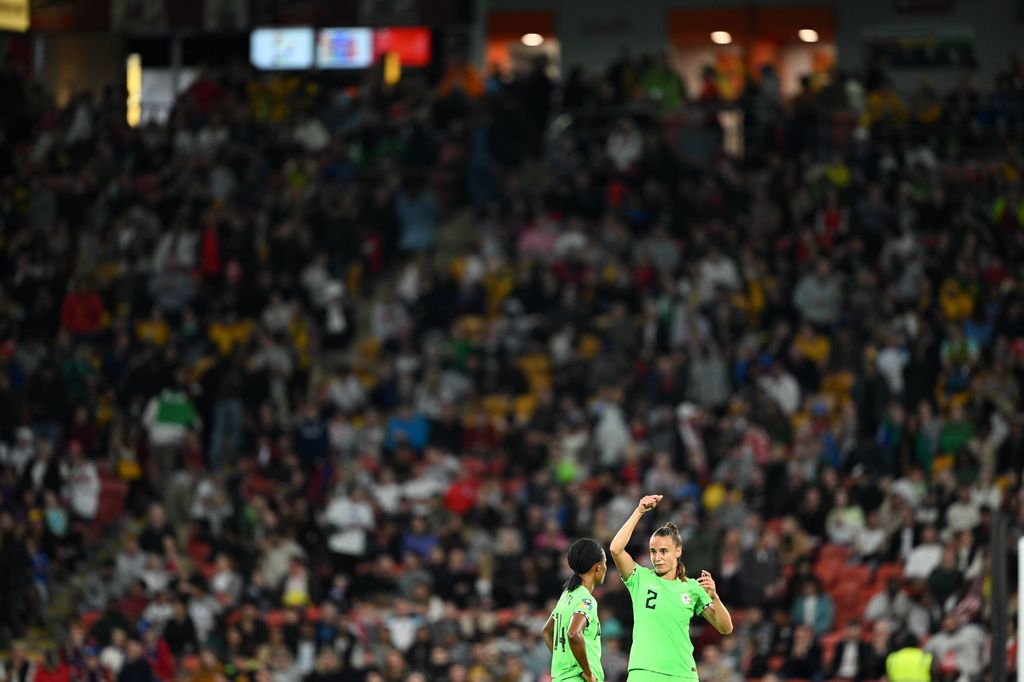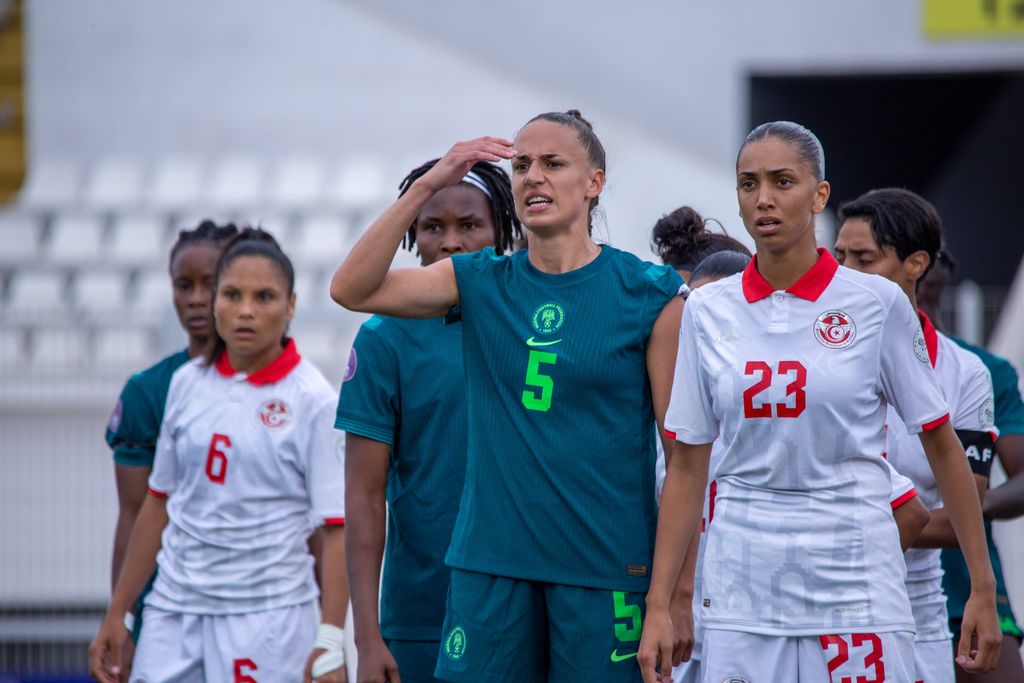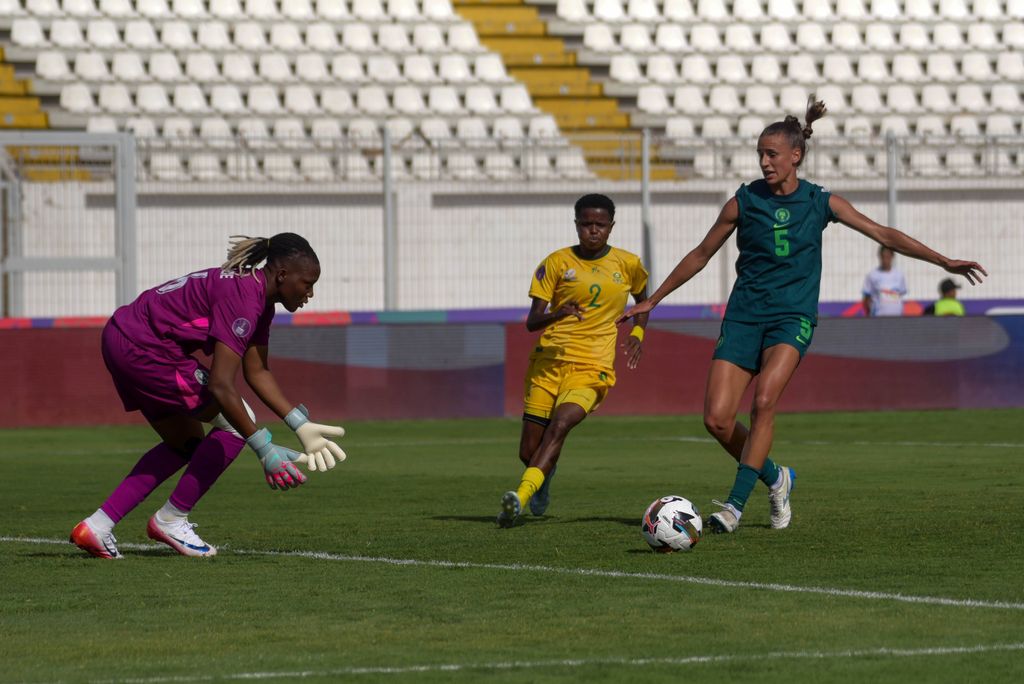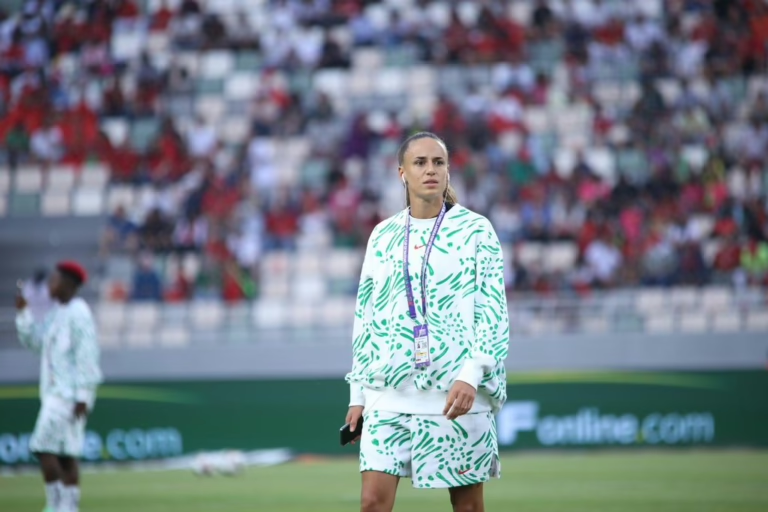Following Nigeria’s exit from the 2023 FIFA Women’s World Cup, Super Falcons defender Ashleigh Plumptre made a significant career move by joining the Saudi Women’s League in September 2023, as reported by Soccernet.ng.
At 27 years old, Plumptre delivered an impressive performance throughout Nigeria’s World Cup journey, despite their round of sixteen defeat to England. After the tournament, she became a free agent and subsequently signed with Al Ittihad.
Since her transfer, Plumptre has continued to excel, playing a pivotal role in Nigeria’s qualification for the 2024 Paris Olympics and contributing to the Super Falcons’ historic tenth WAFCON title after defeating Morocco.
Plumptre Reflects on Her Move to Saudi Arabia
Transitions like Plumptre’s-from Europe to the Middle East-are uncommon for female footballers in their prime, but she has never been one to follow the conventional path. From switching her international allegiance from England to Nigeria to embracing the Saudi league, her career choices defy norms, though not without attracting some criticism.
In a candid discussion with BBC Sports UK, the former Leicester City defender opened up about her motivations for joining Al Ittihad and adapting to life in Saudi Arabia, contrasting it with her upbringing in England.
“I had conversations with clubs in the UK, US, and Europe, but then my dad mentioned a Saudi team showing interest,” Plumptre recalled.
“At first, I was taken aback and thought ‘no,’ but I decided to explore the opportunity.”

The Saudi Women’s Pro League, which turned professional in 2022, permits clubs to sign up to six foreign players. While the men’s league has attracted numerous European stars in their prime-highlighted by Cristiano Ronaldo’s move to Al-Nassr in December 2022-the women’s league is still developing its competitive edge.
Despite the league’s reputation for lucrative contracts, Plumptre emphasized that financial gain was not her primary motivation.
“I had a lengthy conversation with the coach and management, and I told my dad, ‘I have a really good feeling about this,'” she shared.
“Our discussion went beyond football; it was about our passions and values. I trust my instincts, but I also wanted to experience it firsthand. After visiting for two days, I knew this was where I wanted to be.”
Previously, at Leicester City, Plumptre was actively involved with the club’s LGBT supporters group. Her decision to move to Saudi Arabia, a country known for its conservative stance on LGBT issues, sparked backlash.
“The reaction when I moved here was tough,” Plumptre admitted.
“Some people from Leicester expressed disappointment, as if I had changed into someone they didn’t recognize. I understand their feelings because they think I represent something that makes them feel undervalued.”
“I want to be clear that my move doesn’t mean I endorse everything associated with it.”

Feeling Secure in Saudi Arabia
When asked about her sense of safety living in Jeddah compared to the UK, the former Notts County player offered a surprising perspective.
“Several international players, family members, and friends who have visited here have told me they feel safer and more at ease in Saudi Arabia than in the UK,” Plumptre explained.
“One friend described it as a ‘bubble of peace.’ For instance, I once left my car running with the doors unlocked while I carried groceries into my apartment. That’s something I would never do back home.”
“Of course, there’s always some caution walking at night anywhere, but I don’t constantly look over my shoulder here.”
“This is my personal experience and may not reflect everyone’s, but I find it hard to agree with some Western perceptions of this place.”
“I don’t feel threatened at all. Men are encouraged to treat women respectfully, and there are consequences if they don’t,” she added.
“Every woman experiences some level of fear walking alone at night, whether in Saudi Arabia or the UK, but the degree of fear here is lower due to cultural expectations on men’s behavior.”
Despite the positive environment off the pitch, Plumptre acknowledged that the competitive standard of the Saudi Women’s Pro League is still developing compared to England’s WSL.
“I won’t pretend the level here matches what I’m used to in the WSL or international football, and I was concerned about how that might affect my growth,” she said.
“My teammate Francisca Ordega pointed out that in Saudi Arabia, we have to push ourselves harder because the game’s pace is slower, requiring different tactical thinking and greater personal responsibility.”
“When I arrived, we shared gym facilities with volleyball and basketball teams, but now we have our own space, including a medical clinic, ice baths, and a dedicated locker room.”
“We train on the main pitch, separate from the men’s team. Initially, the field conditions were poor, but after voicing our concerns, improvements were made.”

Looking ahead, Plumptre’s primary goal is to foster the growth of women’s football in Saudi Arabia, contributing to the broader advancement of female sports with hopes that the kingdom will one day host a Women’s World Cup.























0 Comments